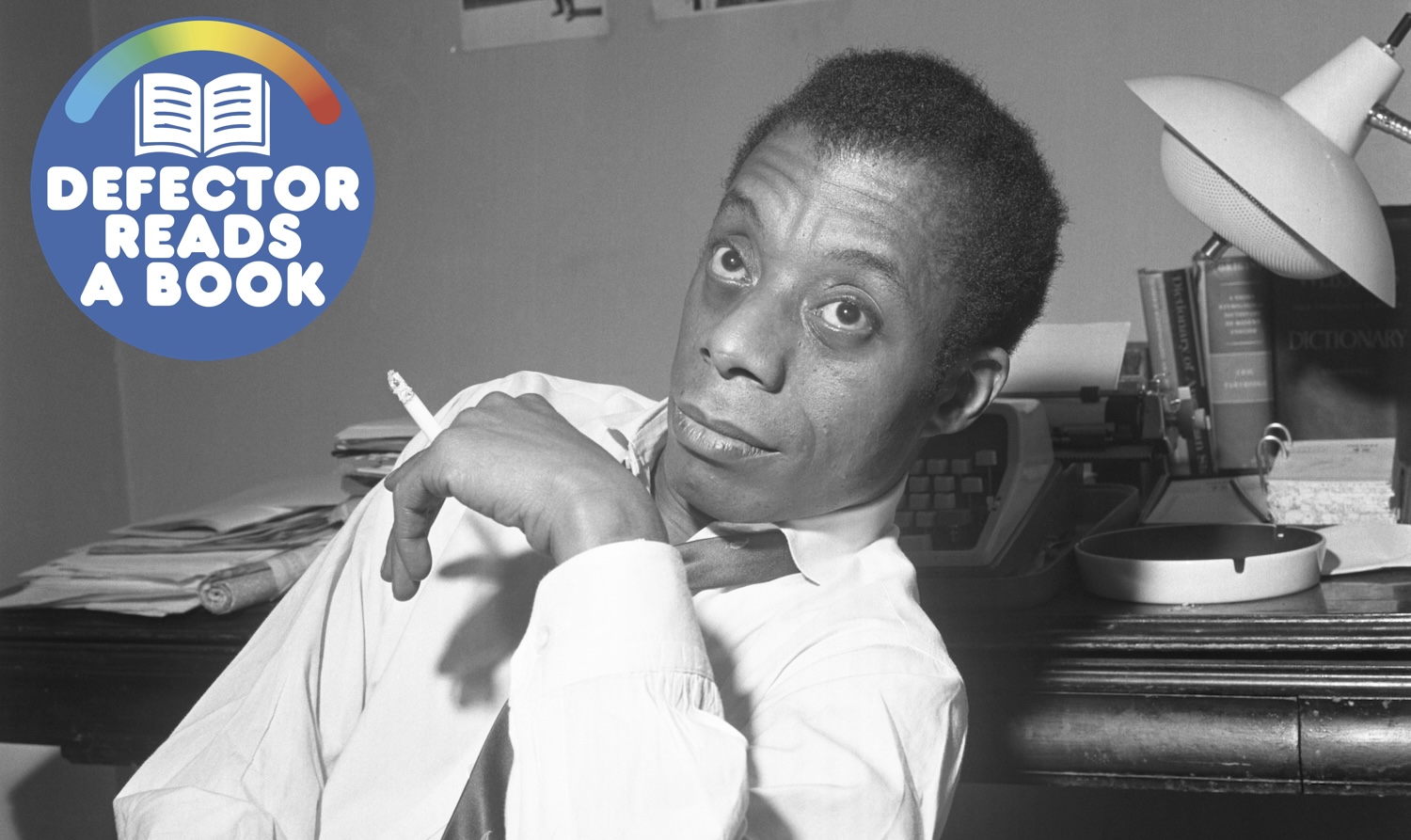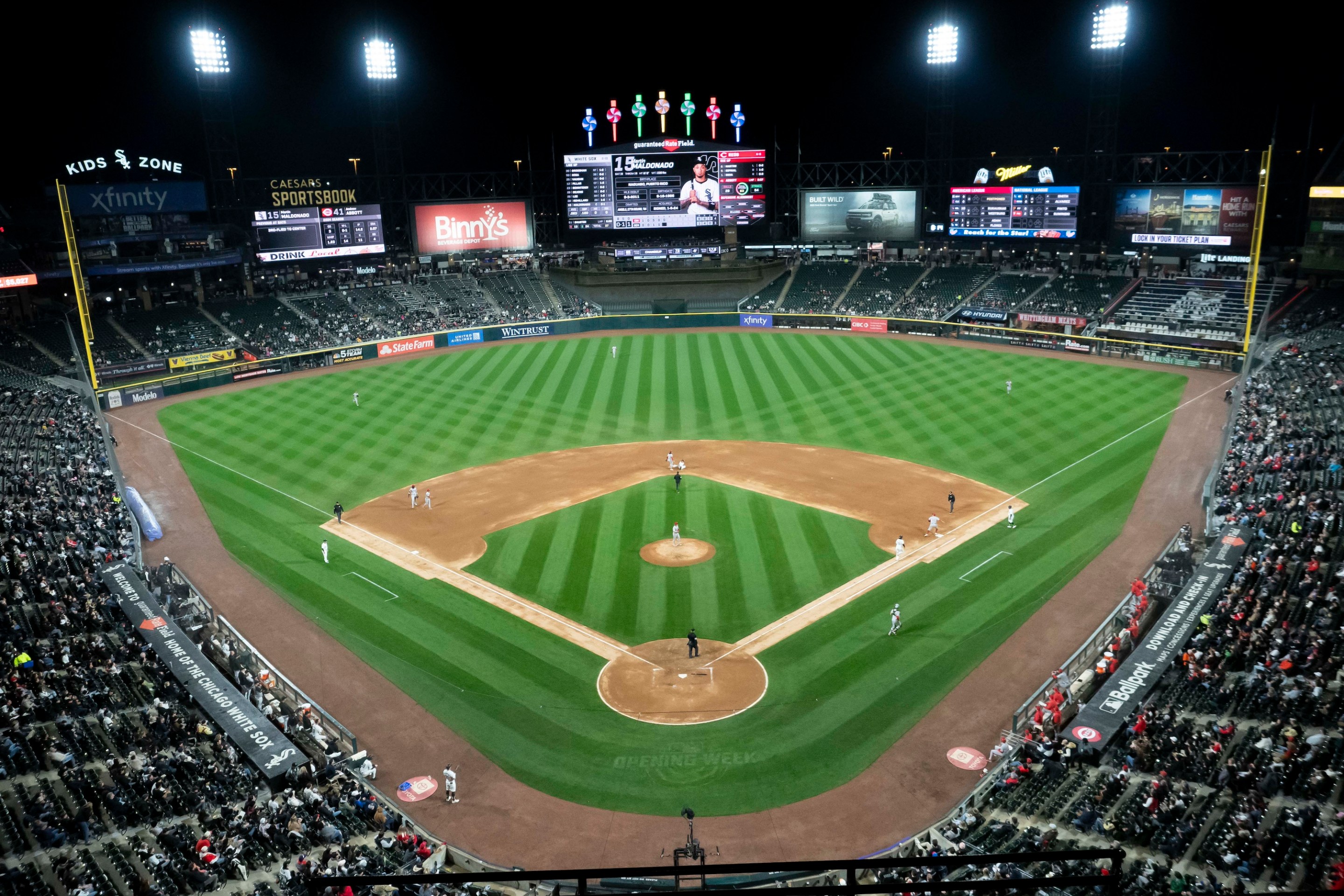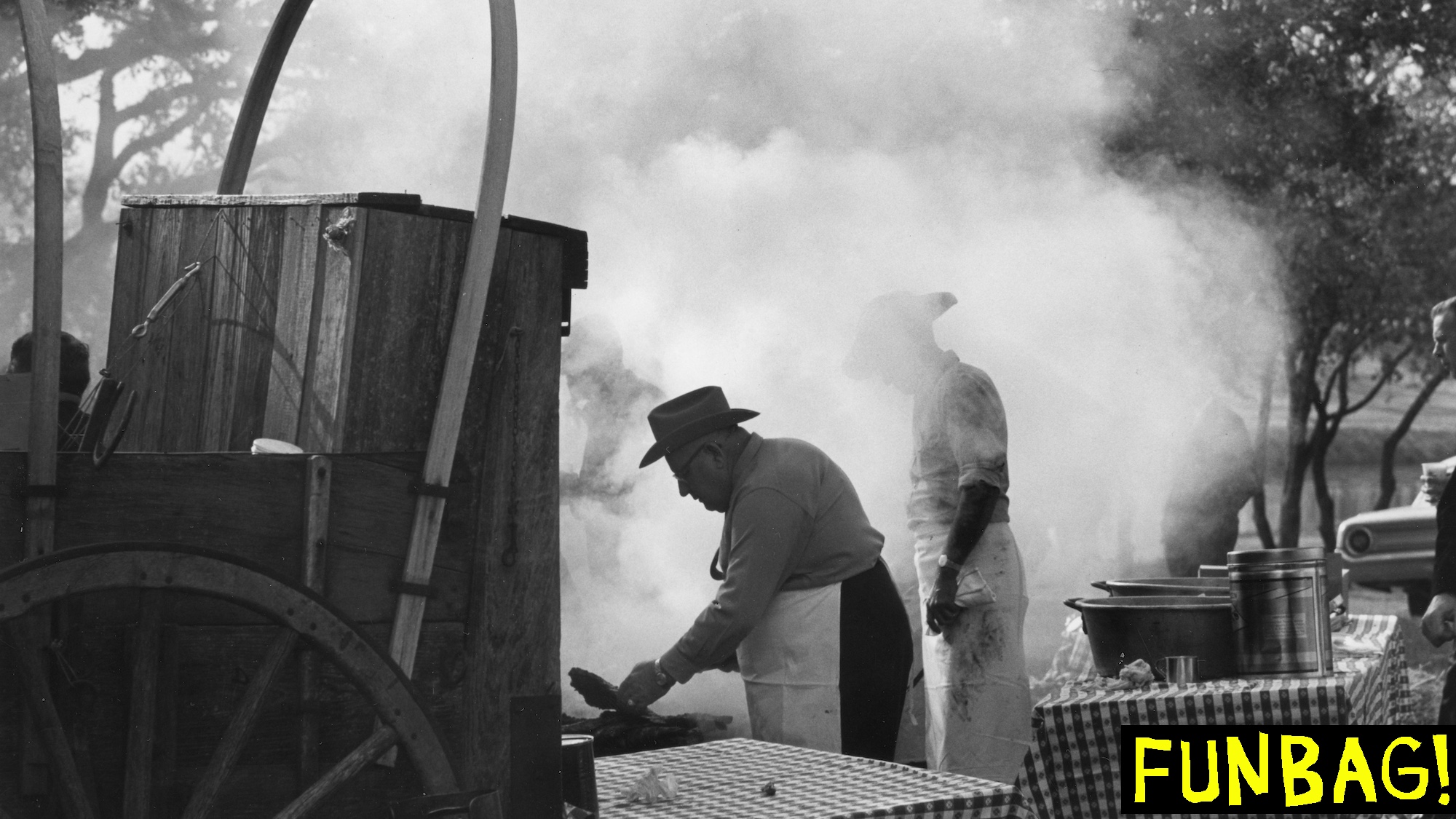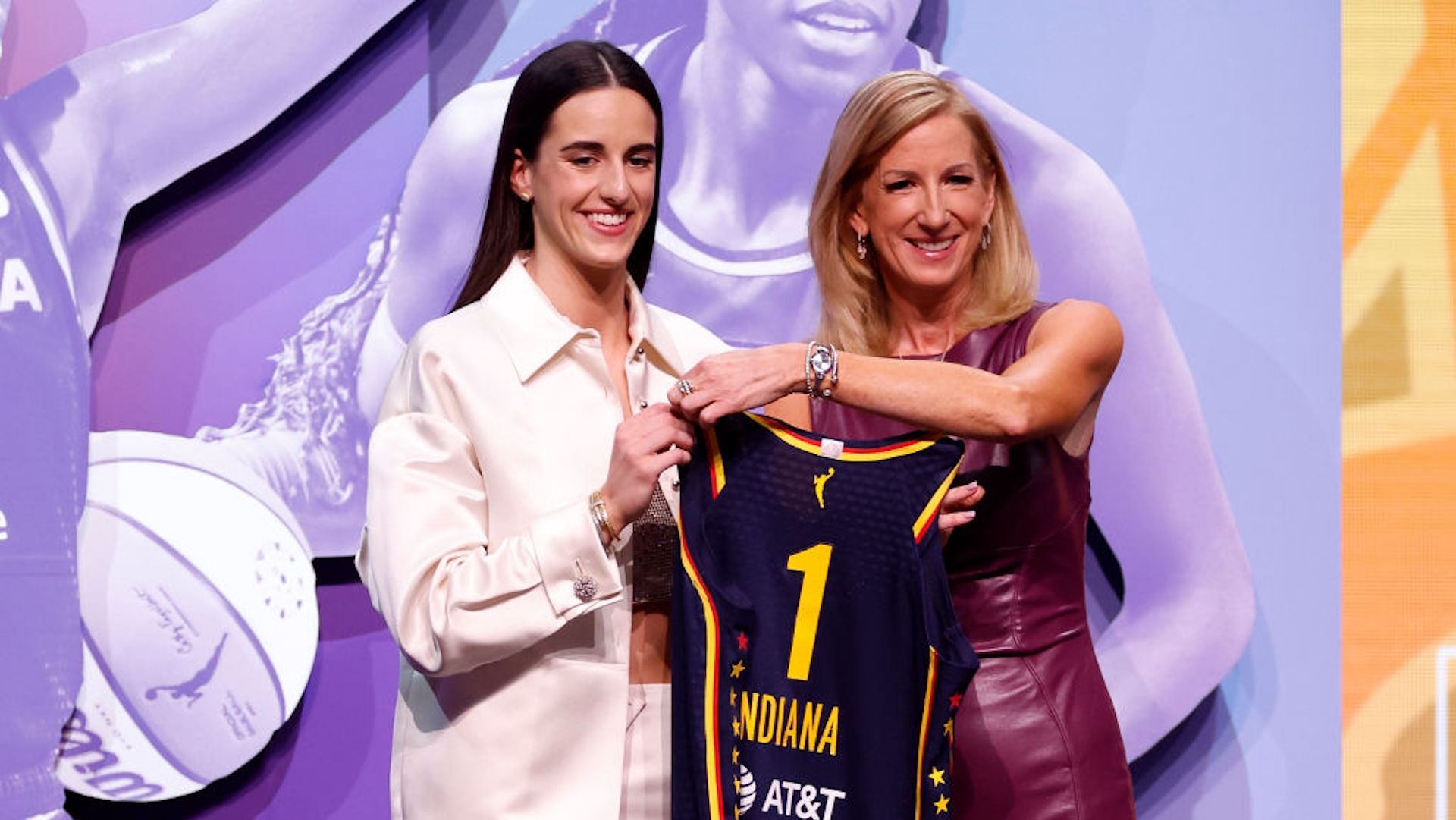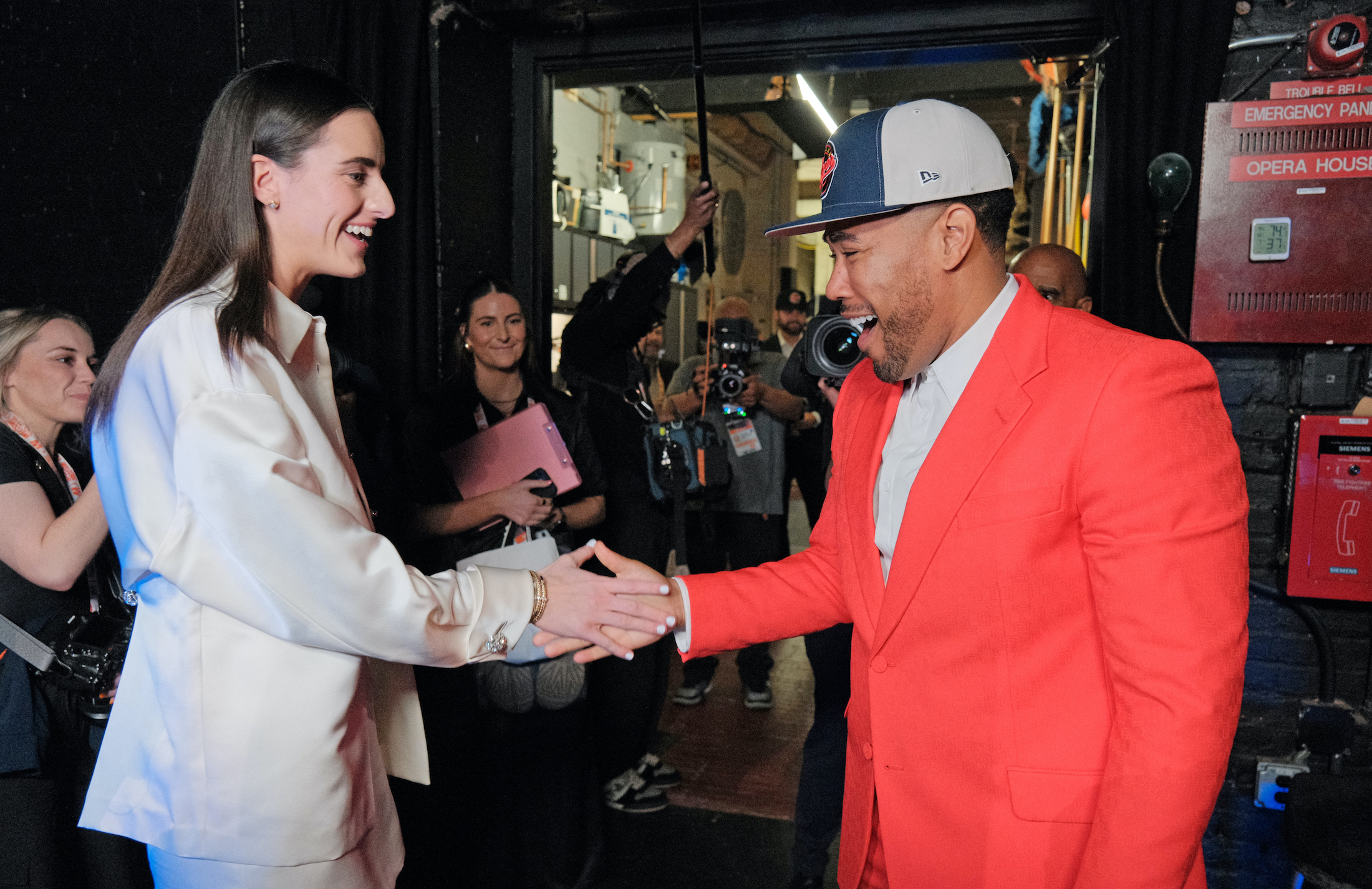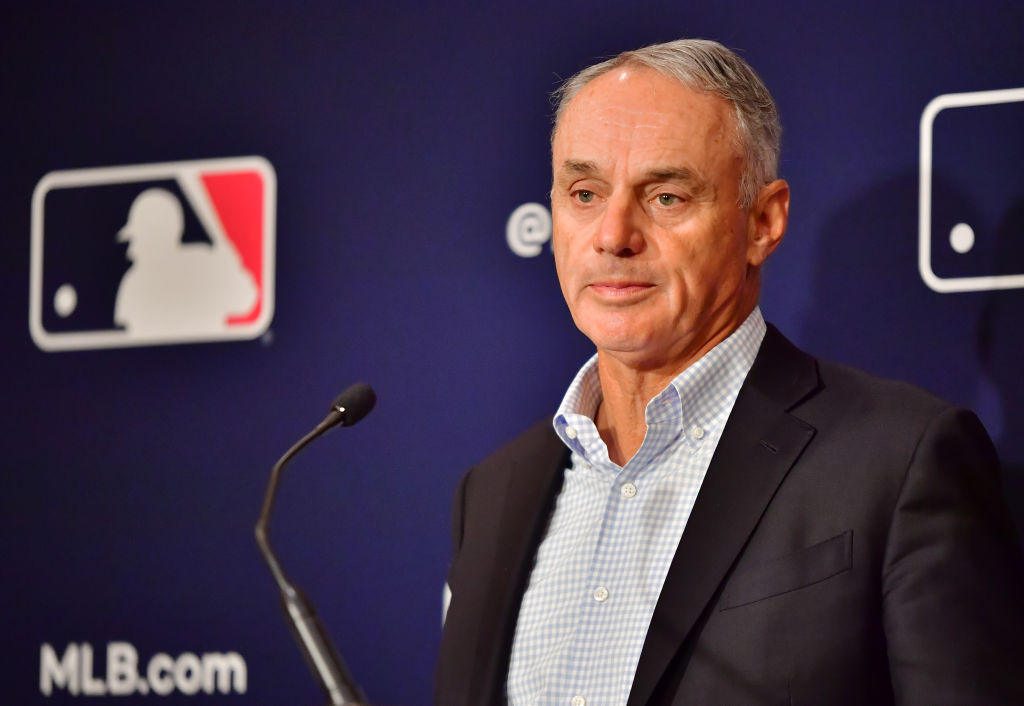
So that's it. MLB's owners, who decided to mark the expiration of the league's most recent CBA by locking out the players, then spent most of the winter refusing to even negotiate the terms of a new CBA, then set and reset several arbitrary deadlines for when a new CBA needed to be ratified in order to prevent the cancelation of games, then spent the last week "negotiating" with the players while conceding almost nothing to the people who make the game that enriches them, have finally decided that the 2022 baseball season will not feature 162 games.
The owners set today's deadline at 5:00 p.m. ET, and it became clear that they would not be moving it back when word got out that they had submitted a "last, best offer" to the players a few hours before the clock ran out. Once the details of that final offer started to be disclosed by various reporters, any hope of having a full season quickly died.
Players union requested luxury tax figures of 238M, 244, 250, 256 and 263. MLB had offered 220M, 220, 220, 224 and 230. That is a massive difference.
— Jon Heyman (@JonHeyman) March 1, 2022
Union request on the bonus pool was $85M. MLB was at $25M. Not close there either. Things look very bad.
— Jon Heyman (@JonHeyman) March 1, 2022
That such huge gaps could still sit between what the players are reasonably asking for and what the owners are obstinately demanding might have come as a shock to fans who were intently monitoring the reports leaking out of yesterday's bargaining session. More than a few reporters hinted yesterday that progress was being made, and that there was some hope that a deal could be struck in time to avoid canceling games. Bob Nightengale was even moved to compose what could qualify as a hopeful poem if read in the right way. How could a resolution that seemed in reach last night be nowhere to be found less than 24 hours later?
The owners got right to work trying to spin today's outcome as a result of the players acting in bad faith.
MLB official: "The MLBPA has a decidedly different tone today and made proposals inconsistent with the prior discussions. We will be making our best offer before the 5 p.m. deadline for the MLBPA that’s a fair deal for players and clubs.” 2/2
— Evan Drellich (@EvanDrellich) March 1, 2022
If that smells like bullshit, that's because it is. Something that many of the people who observe and even participate in these labor negotiations are perhaps loathe to admit is that an outcome like today's was guaranteed a long time ago. It's natural for fans and reporters to prize the hour-to-hour drama of a heated negotiation process, and it benefits the owners to foster the impression that the process is a fluid one, full of unexpected twists and reversals. The more the owners can make the whole thing feel like a TV show, the less likely fans are to remember that every decision that has put the 2022 season at risk was made by them, and nobody else.
FWIW MLB has pumped to the media last night & today that there’s momentum toward a deal. Now saying the players tone has changed. So if a deal isn’t done today it’s our fault. This isn’t a coincidence. We’ve had the same tone all along. We just want a fair deal/to play ball.
— Alex Wood (@Awood45) March 1, 2022
The much more depressing reality is that the management side in any CBA negotiation is almost always making decisions based on its calculation of a relatively simple math problem. Instead of conceiving of these negotiations as a complex and ever-shifting dialogue guided by various personalities and priorities, imagine instead the owners sitting at one end of the table with a big bucket full of money at their feet. Nobody but them has any idea how much money is in the bucket, and they know precisely how much any proposal the players make would take out of the bucket. They also know exactly how much each canceled game will subtract from the bucket. All they care about is finishing this process, whether that be today or months into a lockout-shortened season, with their desired amount of money in the bucket.
The specifics of how the owners fill up that bucket don't really matter, and since they are the only ones who can see inside of it, they can game things out well in advance. The owners know exactly how many games they can afford to cancel before they start to feel any sort of negative financial consequences, which will always be far less severe than those felt by the players. So why even bother negotiating in good faith before canceling some games? Why surrender the extra leverage that comes from players missing paychecks just for the sake of maintaining a 162-game schedule? What, you think these guys actually give a shit about the sport they lord over?
Players are used to their “threats”. Owners actions have made it clear all along that they have a set # of games where they still make profits/get TV money. They don’t want to play. It’s sad that these are the guys who drive the direction and “future”of our amazing sport.
— Jameson Taillon (@JTaillon50) February 28, 2022
Games are going to be canceled because the owners want them to be canceled. The only way the players could have prevented this from happening was not by negotiating, but by surrendering in full. To find a path to victory now, the players will have to demonstrate a great deal of resolve. Every game that falls off the schedule will hurt them more than it hurts the owners, but if they wait long enough that bucket will eventually start leaking. Only then will anything resembling a true good-faith negotiation be able to take place.
If you liked this blog, please share it! Your referrals help Defector reach new readers, and those new readers always get a few free blogs before encountering our paywall.
Editor-in-Chief.
Read More:
Stay in touch
Sign up for our free newsletter
